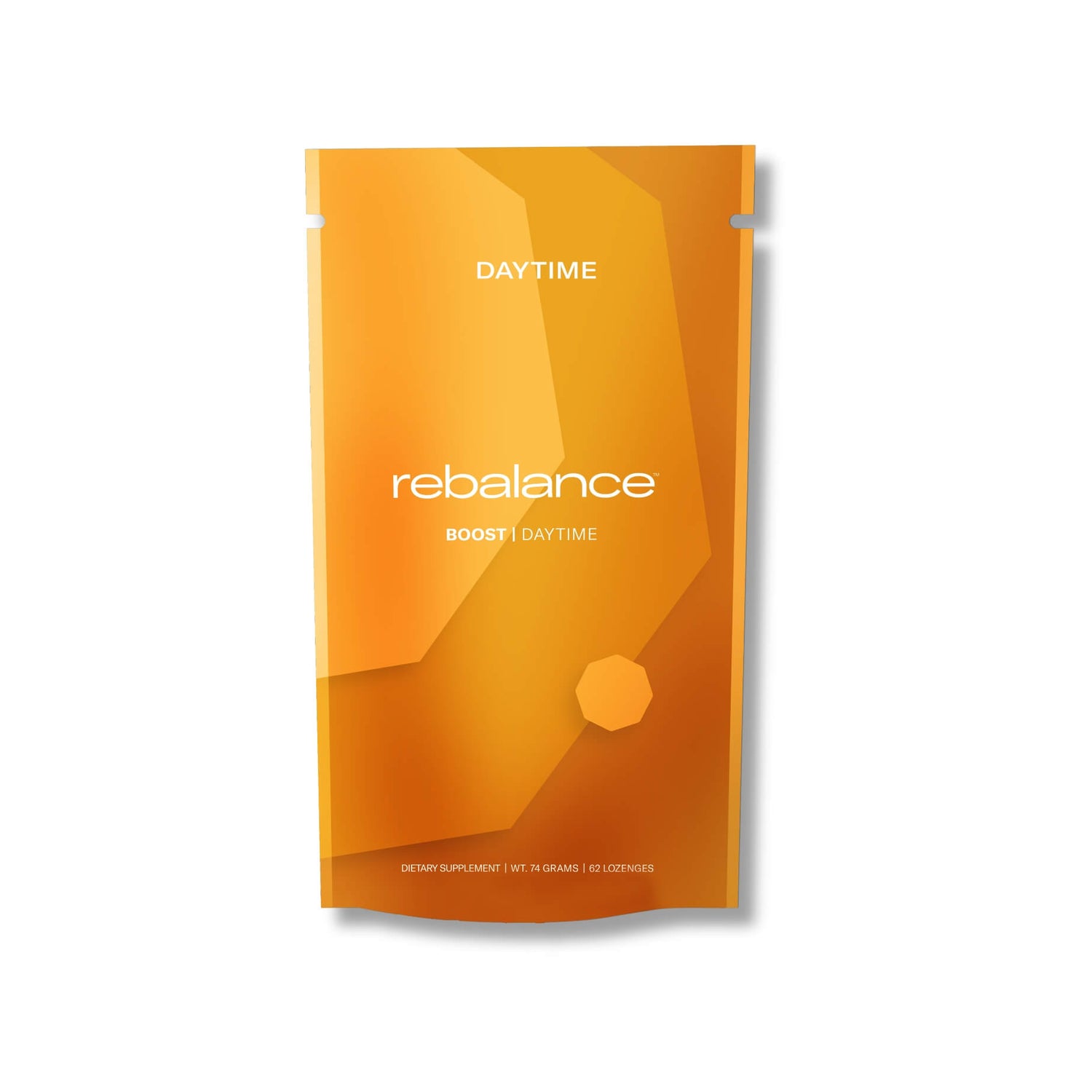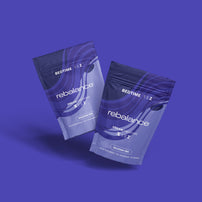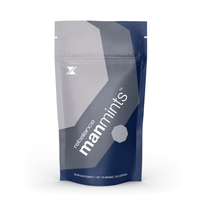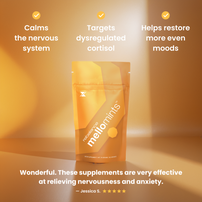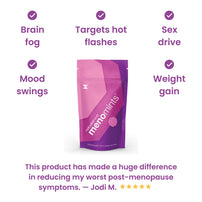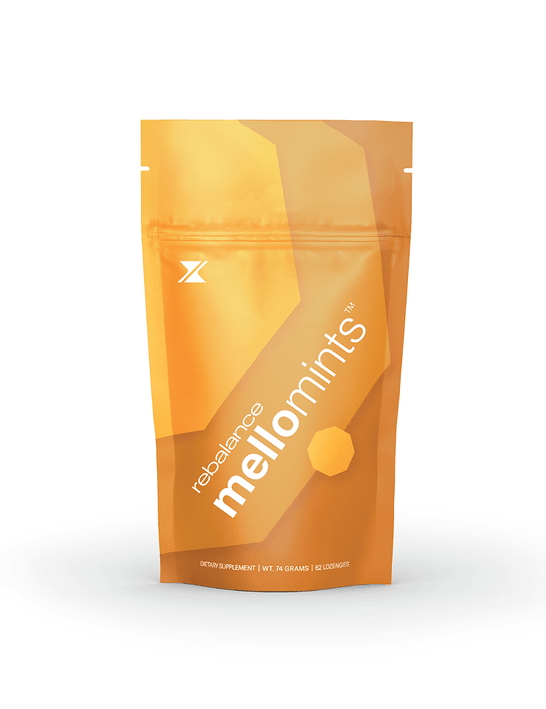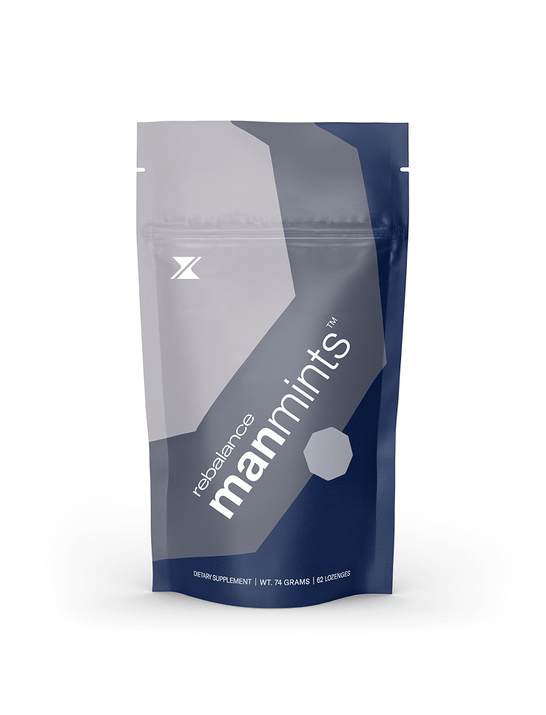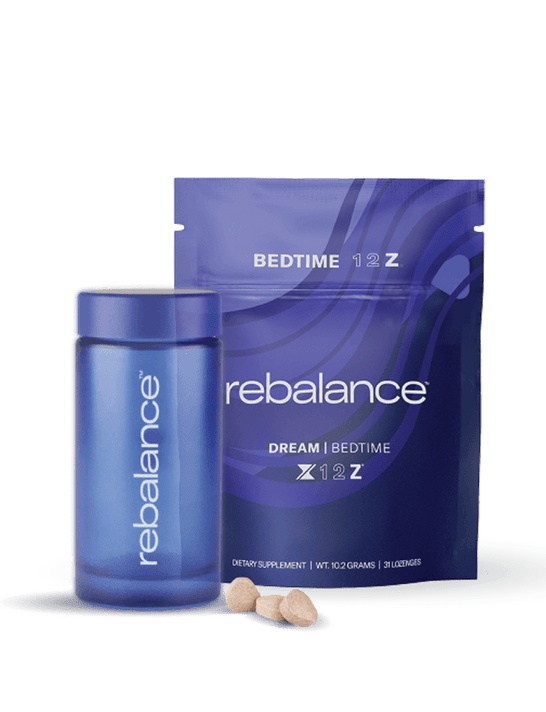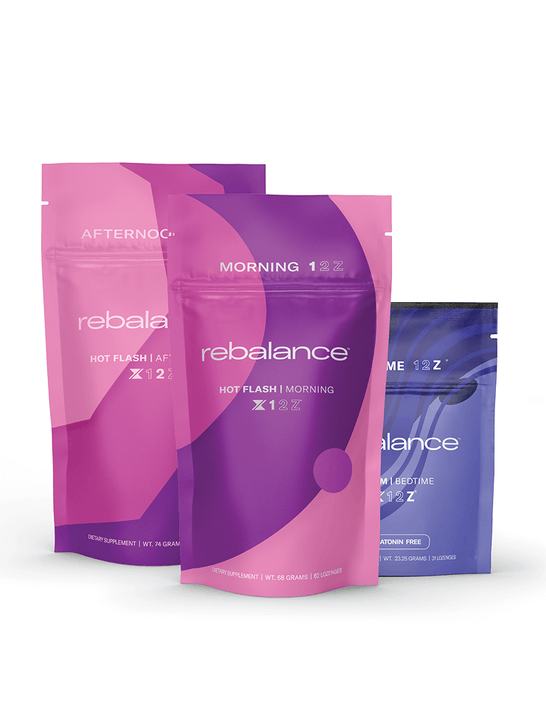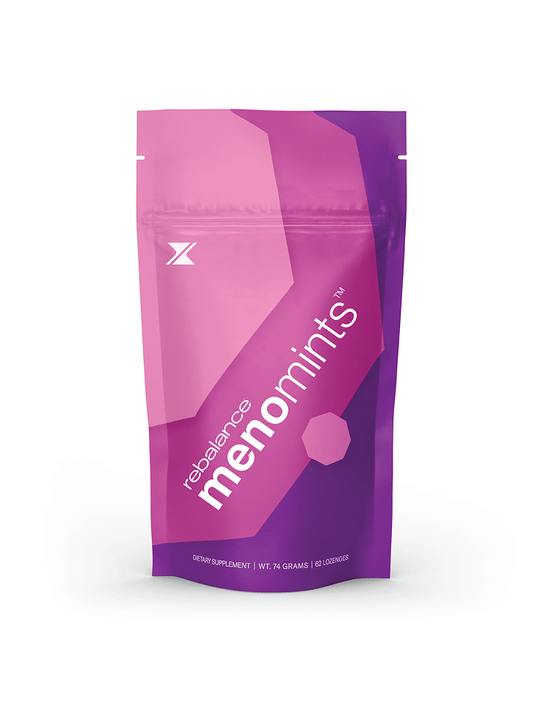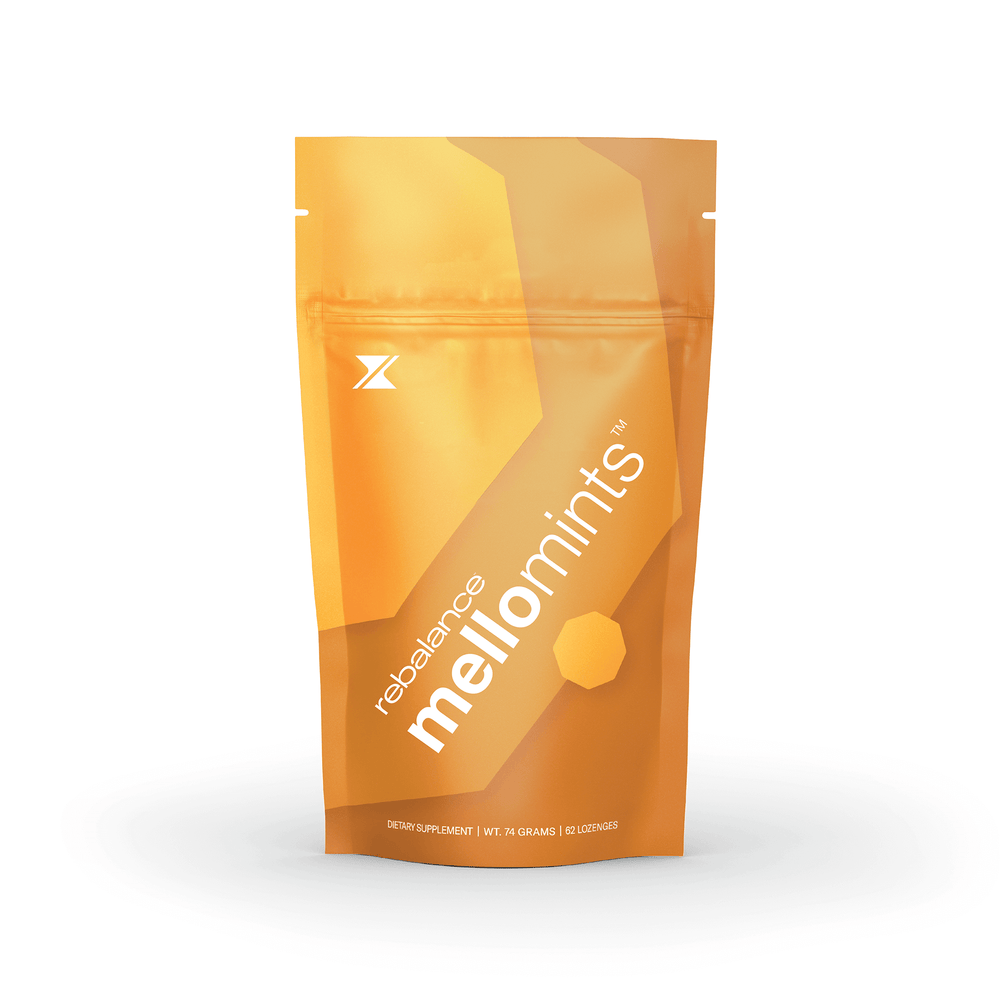From The Co-Founders Of Alastin, Rebalance Health Wants To Bring Cortisol Control To The Masses
06/27/2024 by Rebalance Health

Originally posted on beautyindependent.com
Written by Bianca Salonga
Following a lucrative exit, many founders would understandably take some well-deserved time off. Not Justin Hai. After selling Alastin, which he started in 2014 with Connor and Scott Glenn, to Galderma in 2021, he quickly turned his attention to building another brand, Rebalance Health, which stemmed from the very personal mission of developing a natural solution for his wife Jojo’s Cushing’s syndrome.
She was diagnosed with the syndrome, a rare condition affecting 10 to 15 people per million annually, after a traumatic brain injury left her in a coma for three days and led her right frontal lobe to atrophy. A hallmark of the disease is high levels of cortisol that cause debilitating symptoms not dissimilar from menopause symptoms, including a lack of energy and brain fog.
Zeroing in on cortisol control, Rebalance offers three systems with supplements intended to be taken in the morning, afternoon and night—Hot Flash, Anxiety and Testosterone—priced at $99 for a one-month supply. Hai says, “What started off as a mission to help my wife combat high levels of cortisol has turned out to be a lifeline for the population in reducing cortisol levels.”
Rebalance has raised around $22 million in total funding. Last year, it secured nearly $7.4 million in a series C round. Scott Glenn, a long-time investor and entrepreneur driving scientific startups, has teamed up again with Hai at Rebalance. The two are both involved in venture capital firm Windamere Venture Partners as well.
Beauty Independent spoke to Hai about why Rebalance creates supplements in lozenge form, the brand’s distribution model, its streamlined product focus and big goals for the future.
Why did you develop a cortisol control supplement?
We tried everything [for my wife] that the doctors recommended—natural solutions, pharmaceutical solutions, Chinese medicine solutions. Nothing worked. I did a deep dive into endocrinology. I found some of the best doctors and experts around the country and a board of about 20 different experts that helped me put together a list of ingredients known over centuries to be beneficial in lowering cortisol. If it didn’t move the needle, I didn’t put it in the formulation.
It wasn’t just for cortisol, it was, how do I get energy? How do I get her to control cortisol in a positive way? I also looked into how the body functions. What I learned was that cortisol is a master hormone. [Those are] my words, not medical words. Every molecule in the body pretty much has a cortisol receptor. When your cortisol is high, you feel it from your head to your toes. Because of that, it’s debilitating.
This hormone, when it’s elevated, affects everything in the body—your immune system, your metabolism, the way your body functions. It’s your fight or flight hormone. It’s what’s helping you get in those zones to help you get out of this danger. It’s not meant to be in an elevated stage for very long periods of time.
When cortisol is elevated, it prevents you from going to sleep and getting consistent sleep. You make hormones during your deep sleep cycle, not REM or light sleep. The natural circadian rhythm is light, deep, REM, and it rinses and repeats four or five times in a night with diminishing deep sleep as the night goes on. You should make about 60 to 90 minutes of deep sleep in that period, which is seven to eight hours for adults.
Not many adults get seven to eight hours of sleep. Therefore, they’re operating at a deficit. Too many of those sleepless nights or difficulty getting to sleep, you simply don’t make the hormones you need to function the next day. That’s what compounds the aging process.
My wife’s cortisol went down, so her life got back to relatively normal. We thought we’d take it to market as a cortisol product to help others when we realized we were getting feedback from people taking the product that it had other benefits.
I knew it would because you’re going to get proper sleep if cortisol’s lower. Your body’s naturally going to rebalance, and you’ll naturally make more hormones. That’s what started to happen. We had people taking the product that gave us immediate feedback that [they’re] no longer getting hot flashes that were absolutely debilitating and sleeping better.
Why did you choose lozenges for Rebalance’s supplements?
About 90% of supplements never make it into your body. You swallow them and your stomach destroys them instantly. Americans spend $60 billion a year on supplements in the hope that something’s going to work. Instead, Americans have the most expensive urine on the planet.
During the process of developing the formula, we wanted to make sure it actually got into the body. We did some studies on delivery, and you cannot trace ashwagandha, maca, cordyceps, lion’s mane in the body because they’re all natural. They’re made up of too many amino acids, proteins, carbohydrates, starches, etc. There’s no way to trace that in the blood.
I could trace melatonin because it is a hormone that we make in our body In full transparency, we have a little bit of melatonin—2.5 milligrams in our bedtime product—to help fall asleep quickly. What I was able to do was trace melatonin in the body based on just our delivery system. I compared it to the leading gummy with 2.5 milligrams of melatonin and the leading pill or tablet with 2.5 milligrams of melatonin. We found was that our delivery system was over 300 times more bioavailable.
We hit the competitors’ maximum therapeutic level, meaning the maximum dosage that we can find in the blood at 15 minutes. They hit it at 50 minutes. That showed that we were faster-acting, and we sustained that level that they hit for a moment in time. We surpassed it and stayed above their maximum therapeutic level for a hundred times longer.
How did you test?
It had to be blood. Saliva and urine are questionable. We did something very crazy. We actually hooked up the participants in the study to an IV drip, and we drew blood every 10 minutes for four hours. We took it before they tasted the product and put it in their mouth, then every 10 minutes thereafter until we figured that we knew how long the body would take four to six hours to digest something. We thought four hours, let’s see that. That’s an awful lot of blood to take from someone, so let’s give it a shot—and we did.
We were able to trace the melatonin blood samples over that period of time throughout the study. We did it over a period of couple of weeks to get the multiple data from the same subjects who took melatonin of each product at each time. That data was reviewed and published by a Swiss journal called Journal of Vitamins and Minerals proving that our efficacy and the way that we did it was legitimate.
Our proprietary system enables ingredients to be absorbed through the sublingual pathway into the body, and that is a very key component because it gives us the ability to be able to get into the blood and be effective. It’s why we believe our product is so effective.
Whether it’s the Testosterone system, the Hot Flash system or the Anxiety system, they all do the same thing. They’re slightly different in their formulation, but I would say 75% to 80% identical. They’re designed to lower cortisol and keep you calm throughout the day without making you a zombie, helping you fall asleep quickly and staying asleep.
What is Rebalance’s retention rate?
Close to 70%.
Can you tell us about the brand’s funding?
I’ve been very blessed in my career. I’ve had a lot of successful ventures. I’ve worked in venture capital and private equity. Over the years in Windamere Venture Partners, we have put together some very big pharmaceutical companies. We’ve done cancer drugs. The last company we sold, Prometheus Therapeutics, we sold for $10.8 billion cash to Merck last year. We have a very strong following of investors that we have cultivated for the better part of 20 years.
Those investors follow us from venture to venture, and the investors are very, very excited about this particular channel and opportunity. We were able to raise $22 million to enable us to do this properly. Really, the big market is menopause because it’s a $12 billion underserved market in the United States with a whole bunch of nonsense and misinformation being spread.

Where is Rebalance sold now, and what’s the plan for retail?
Our plan is very different. We believe that social media, online selling and influencers and celebrities has run its course. We’ve been saturated with so many claims and people suggesting that we’ve got solutions that work that we don’t trust anyone. Even with medical studies and publications, credibility is the name of the game.
It’s very hard to get direct-to-consumer. Going to retail stores requires a markup in price, and I want to make this affordable for everybody, not just the select few. With retail, it’s a 50% markup off of wholesale. I have to sell this thing at double the price for us to break even. And for the Whole Foods, Targets and Walgreens of the world to make their required 50% to 60% margins, it’s not a viable model.
We’re doing an affiliate model. We gave it for free for months to women in the hopes that they tell their friends. We’re trying to do a modern-day whisper campaign and give a financial reward to everyone that makes a referral. It’s pretty straightforward. Seems to be working very well thus far. We’re still paying the Metas and Googles of the world for the ads, but we’re trying to avoid retail because it doesn’t make much sense.
We’ve got people on our board like Jeffrey Horowitz, founder and [former] CEO of The Vitamin Shoppe. We’ve got the CEO and founder of Sleep Number. We’ve got big VCs, and the former president of Goop. We all are having the same conversations around, how’d you get it to the market? How do you scale? We believe it’s a combination of what we’re doing: aggressive PR, marketing to support that and an awareness campaign.
What are the plans for future launches?
Our roadmap is simple: help as many people as we can with the solution that we know works and don’t get distracted. We don’t have any other products on the horizon as of today. Our goal is to ideally attract an acquiring entity like a Johnson & Johnson, some big pharmaceutical company that wants to hold true to what we’re doing, but has the hundreds of millions of dollars to put behind it to take the product globally and help the masses.
It’s unusual to have a supplement that has gone through as much rigorous testing and clinicals as we have, and we have many more clinicals in the pipeline. Why are we trying to get another product line to do something when we have something that the whole world needs? We want to stay true to what we’re doing.
Overview

Stay Calm. Sleep Deep. Wake Clear.
A lozenge that supports deep sleep, better REM, and calmer nights. Without melatonin — unless you want it.
